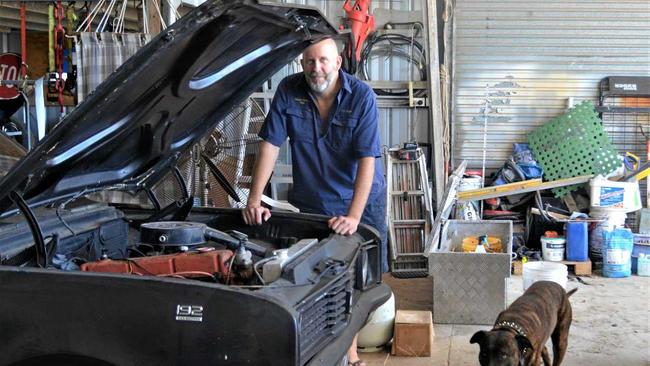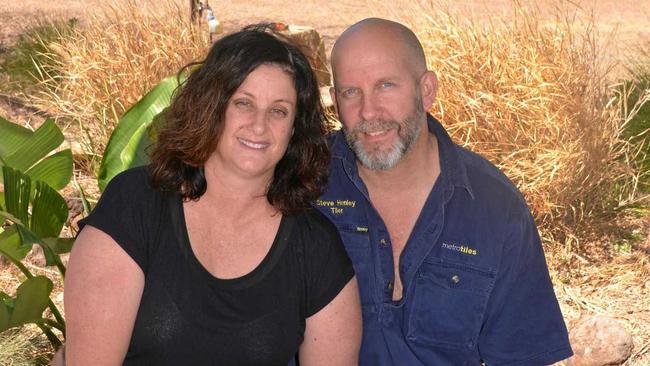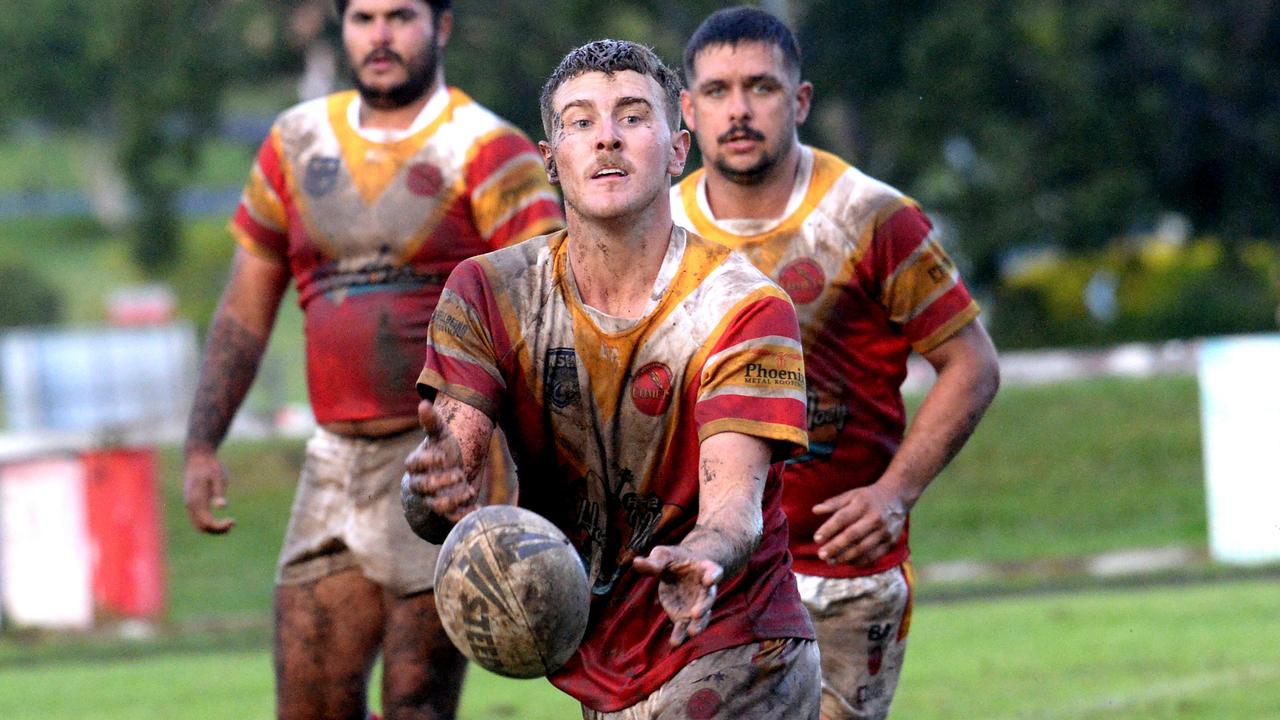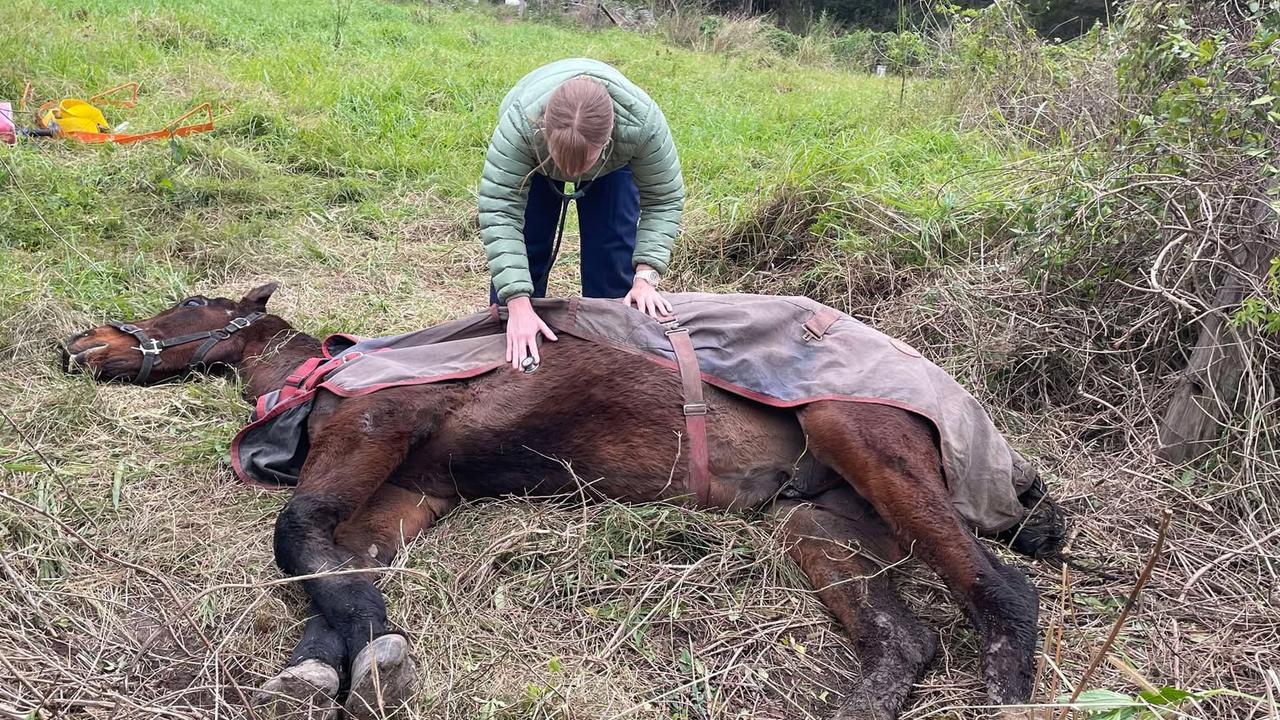Two years to live: How a stroke gave one dad a wake-up call
HE WAS just 38 and healthy by all accounts, until one day when his hand went dead.

Coffs Harbour
Don't miss out on the headlines from Coffs Harbour. Followed categories will be added to My News.
WHEN Mount Marshall dad Steve Henley went to grab his cup and his hand fell off the chair instead, he had no idea it was a sign he was about to face a serious health battle.
In February, at 38, Mr Henley had just had a stroke, with his only symptom being tiredness and a numb arm.
"It felt as it it was asleep, and I sat there for a bit, thinking 'far out what's going on'," he said.
Still, Mr Henley didn't think much of it, not even heading to the hospital the next day.
It was then that Mr Henley discovered he had a 7mm blood clot on the left side of his brain.
In Australia, stroke is the third most common cause of death, striking about 55,000 people annually.
Many believe stroke sufferers have to be elderly or excessive smokers and drinkers, but as Mr Henley was a non-smoker and moderate drinker, there was nothing doctors could poke their fingers at, according to wife Kathy Henley.
"You wouldn't expect it for a 38-year-old," Mrs Henley said.
"Steve was supposed to be at a job and I had to ring that builder and say 'hey Johnny, Steve won't be there tomorrow he's actually had a stroke'.
"Just the most bizarre thing to try and say."

While Mr Henley was lucky enough to soon recover with little brain damage, his health battles weren't over yet.
His blood results revealed another serious health risk that would have claimed his life.
Upon further examination, it turned out Mr Henley's aortic valve was so damaged it better resembled coral and that he needed a new one immediately.
"As it was, the stroke turned out to be a blessing, because with the valve he had, we were told he would have only had two years to live," Mrs Henley said.
Fresh out of a successful open heart surgery, Mr Henley counts himself as one of the lucky ones and, in honour of national Stroke Week, is warning men to head to their doctor.
"Looking back, I was meant to have a test with my doctor years ago," he said.
"The last time I went I was 22. That was 18 years ago."
Attributing warning signs such as tiredness to being overworked, Mr Henley said his experience demonstrated men couldn't let their jobs overtake their health.
"You want to work hard when you're young to set yourself up for later in life but you have to re-evaluate," he said.
"In a way, we're lucky I had a stroke because it's shown us family is more important than anything."
Ways to reduce your stroke risk:
Act F.A.S.T
WHILE this method isn't preventative, F.A.S.T is an essential test to recognise stroke symptoms.
Using the FAST test involves asking these questions:
FACE: has their mouth drooped?
ARMS: Can they lift both arms?
SPEECH: Is their speech slurred? Do they understand you?
TIME: If you see any of these signs call an ambulance straight away.
Live a balanced life
Strokes can occur at any age, according to Darling Downs Health Nurse Navigator Stroke Unit Mr Tim Richardson
"Alarmingly more than 80 per cent of strokes can be prevented, and it can happen at any age," Mr Richardson said.
"You can reduce your risk of having a stroke by making time for a health check, eating well, staying active, consuming alcohol in moderation and quit smoking."
Control the risk
People with diabetes are more likely to have high blood pressure, which increases your chance of a stroke.
If you have diabetes it is important to keep your blood sugars within a range.
If you have type 1 diabetes, it is recommended you check your blood sugar level four times per day.
If you have type 2 diabetes you should talk to your doctor about managing your blood sugar level.
Originally published as Two years to live: How a stroke gave one dad a wake-up call


